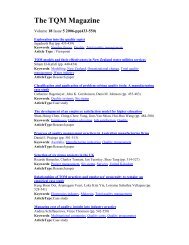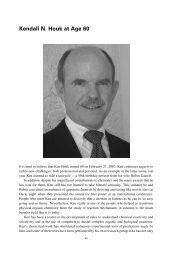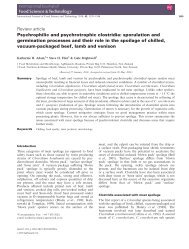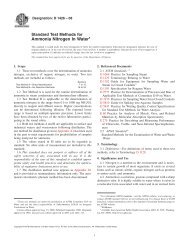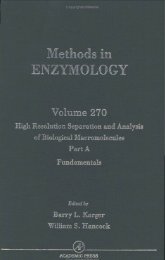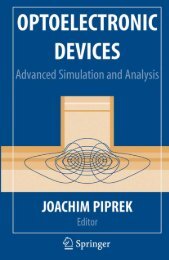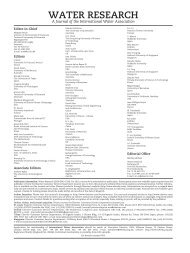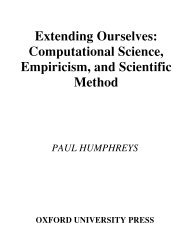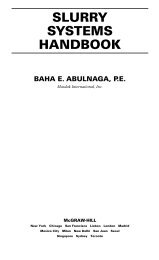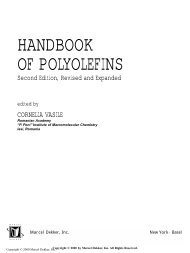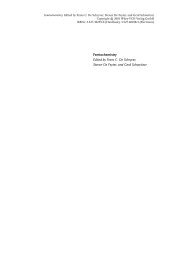Table 2. Detection of Teicoplanin in Human Blood Using the Current Assay or a Commercial FPIA Kit spiked (µg/mL) this method recovery (%) FPIA recovery (%) 9.5 9.2 ± 0.2 97 9.8 ± 0.6 103 19 19.6 ± 0.4 103 18.5 ± 0.6 97 38 39.0 ± 1.0 103 37.8 ± 4.4 99 obtain the original drug concentration. Meanwhile, each plasma sample was also analyzed using a commercial FPIA kit. The spiked and determined concentrations were summarized in Table 2. When human blood samples from different donors were used as the background matrix for spiking, the variation between the determined drug concentrations was similar to the deviation among multiple tests performed using blood samples from the same donor. The accuracy and precision of the current assay is comparable to the commercial kit. In conclusion, we developed a simple analytical assay for the detection and quantification of selected glycopeptides antibiotics, including vancomycin, teicoplanin, and telavancin, in various samples. The method is highly selective toward glycopeptide 7048 <strong>Analytical</strong> <strong>Chemistry</strong>, Vol. 82, No. 16, August 15, 2010 antibiotics and does not need complicated pretreatment for serum and blood samples. In addition, no antibody is used in our method; therefore, we expect the shelf life and storage stability of our assay to greatly exceed those of the commercial FPIA kits. We have stored the AF680-peptide probe at room temperature in the dark for 9 months. No significant loss of signal intensity or binding affinity to antibiotics could be detected. ACKNOWLEDGMENT This work was supported by a RCTF fellowship and the faculty startup fund from University of Kentucky. The authors thank Mr. Raymond Miracle from LABfx LLC for suggestions on the teicoplanin analysis using the FPIA kit. SUPPORTING INFORMATION AVAILABLE Additional information as noted in text. This material is available free of charge via the Internet at http://pubs.acs.org. Received for review February 28, 2010. Accepted July 7, 2010. AC100543E
Anal. Chem. 2010, 82, 7049–7052 Development of a High Sensitivity Rapid Sandwich ELISA Procedure and Its Comparison with the Conventional Approach Chandra Kumar Dixit, †,‡ Sandeep Kumar Vashist, †,|,# Feidhlim T. O’Neill, † Brian O’Reilly, † Brian D. MacCraith, †,§ and Richard O’Kennedy* ,†,‡,§ Centre for Bioanalytical Sciences (CBAS), National Centre for Sensor Research, Applied Biochemistry Group, School of Biotechnology, and Biomedical Diagnostics Institute (BDI), Dublin City University, Dublin 9, Ireland, and Bristol-Myers Squibb (BMS), Swords Laboratories, Watery Lane, Swords, Co. Dublin, Ireland A highly sensitive and rapid sandwich enzyme-linked immunosorbent assay (ELISA) procedure was developed for the detection of human fetuin A/AHSG (r2-HSglycoprotein), a specific biomarker for hepatocellular carcinoma and atherosclerosis. Anti-human fetuin A antibody was immobilized on aminopropyltriethoxysilanemediated amine-functionalized microtiter plates using 1-ethyl-3-[3-dimethylaminopropyl]carbodiimide hydrochloride and N-hydroxysulfosuccinimide-based heterobifunctional cross-linking. The analytical sensitivity of the developed assay was 39 pg/mL, compared to 625 pg/ mL for the conventional assay. The generic nature of the developed procedure was demonstrated by performing human fetuin A assays on different polymeric matrixes, i.e., polystyrene, poly(methyl methacrylate), and polycyclo-olefin (Zeonex), in a modified microtiter plate format. Thus, the newly developed procedure has considerable advantages over the existing method. Conventional enzyme-linked immunosorbent assay (ELISA) procedures have been followed for decades for the detection of analytes of importance in industrial, healthcare, and academic research. However, improvement on existing ELISA technologies are continuously attempted by many groups. 1,2 We report the development of a high-sensitivity ELISA-based assay for human fetuin A (HFA), with lower detection limits and a higher sensitivity than commercially available assays. The biological importance of HFA, a member of the cystatin superfamily, which is commonly present in the cortical plate of the immature cerebral cortex and hemopoietic matrix of bone marrow, is discussed elsewhere. 3-10 There are many commercially available ELISA kits for fetuin A, * To whom correspondence should be addressed. Email: richard.okennedy@dcu.ie. Tel.: +353 1 700 7810. Fax: +353 1 700 5412. † Centre for Bioanalytical Sciences (CBAS), National Centre for Sensor Research, Dublin City University. ‡ Applied Biochemistry Group, School of Biotechnology, Dublin City University. § Biomedical Diagnostics Institute (BDI), Dublin City University. | Bristol-Myers Squibb (BMS). # Current Address: Nanoscience and Nanotechnology Initiative (NUSNNI), National University of Singapore, Engineering Drive 1, Singapore 117576. (1) Kaur, J.; Boro, R. C.; Wangoo, N.; Singh, R. K.; Suri, C. R. Anal. Chim. Acta 2008, 607 (1), 92–99. (2) Jia, C. P.; Zhong, H. Q.; Liu, M. Y.; Jing, F. X.; Yao, S. H.; Xiang, J. Q.; Jin, Q. H.; Zhao, J. L. Biosens. Bioelectron. 2009, 24 (9), 2836–2841. which are listed in Supplementary Table 1, Supporting Information. The assay was demonstrated on different commercially relevant solid supports. The developed ELISA is better than the conventional procedure in terms of greatly reduced overall assay duration, higher sensitivity, and greater reproducibility. HFA was taken as the model assay system to demonstrate the utility of our developed ELISA procedure since all the assay components were commercially available in kit form. This enabled us to do robust and highly precise comparison of the developed ELISA with the commercially existing conventional ELISA procedures, as the same assay components were used under the same conditions. The developed procedure can be employed on any commercially relevant substrate. Therefore, this approach of immobilizing antibody on chemically modified solid supports (Figure 1) has potential applications in many other assays and formats. EXPERIMENTAL SECTION Plate Preparation, Amine-Functionalization with Silane, and Cross-Linking Carboxyl Groups of Anti-HFA Antibody to the Amino Groups of the Surface of Microtiter Plate Wells. Each well of the 96-well plate was treated with 100 µL of absolute ethanol for 5 min at 37 °C and washed five times with 300 µL of deionized water (DIW). Subsequently, each well was treated with (3) Kalabay, L.; Gráf, L.; Vörös, K.; Jakab, L.; Benk|Ado˜, Z.; Telegdy, L.; Fekete, B.; Rohászka, Z.; Füst, G. BMC Gastroenterol. 2007, 7, 15. (4) Srinivas, P. R.; Wagner, A. S.; Reddy, L. V.; Deutsch, D. D.; Leon, M. A.; Goustin, A. S.; Grunberger, G. Mol. Endocrinol. 1993, 7, 1445–1455. (5) Mathews, S. T.; Srinivas, P. R.; Leon, M. A.; Grunberger, G. Life Sci. 1997, 61 (16), l383–1392. (6) Kalabay, L.; Prohászka, Z.; Füst, G.; Benkõ, Z.; Telegdy, L.; Szalay, F.; Tóth, K.; Gráf, L.; Jakab, L.; Pozsonyi, T.; Arnaud, P.; Fekete, B.; Karádi, I. In Liver Cirrhosis: New Research; Chen, T. M., Ed.; Nova Science: New York, 2005; pp 63-75. (7) Reynolds, J. L.; Skepper, J. N.; McNair, R.; Kasama, T.; Gupta, K.; Weissberg, P. L.; Dechent, W. J.; Shanahan, C. M. J. Am. Soc. Nephrol. 2005, 16, 2920–2930. (8) Jethwaney, D.; Lepore, T.; Hassan, S.; Mello, K.; Rangarajan, R.; Dechent, W. J.; Wirth, D.; Sultan, A. A. Infec. Immun. 2005, 73 (9), 5883–5891. (9) Ix, J. H.; Shlipak, M. J.; Brandenburg, V. M.; Ali, S.; Ketteler, M.; Whooley, M. A. Circulation 2006, 113, 1760–1767. (10) Hermans, M. M. H.; Brandenburg, V.; Ketteler, M.; Kooman, J. P.; Sande, F. M. V. D.; Boeschoten, E. W.; Leunissen, K. M. L.; Krediet, R. T.; Dekker, R. T. Kidney Int. 2007, 72, 202–207. (11) Park, S. J.; Jung, W. Y. J. Colloid Interface Sci. 2002, 250, 93–98. (12) Cass, T.; Ligler, F. S. Immobilized biomolecules in analysis: a practical approach; Oxford University Press Inc.: New York, 1998. 10.1021/ac101339q © 2010 American <strong>Chemical</strong> Society 7049 <strong>Analytical</strong> <strong>Chemistry</strong>, Vol. 82, No. 16, August 15, 2010 Published on Web 07/20/2010
- Page 1 and 2:
Anal. Chem. 2010, 82, 6745-6750 Let
- Page 3 and 4:
purchased from Invitrogen-Molecular
- Page 5 and 6:
Figure 3. Electropherograms of TPP-
- Page 7 and 8:
Anal. Chem. 2010, 82, 6751-6755 Res
- Page 9 and 10:
(pH 8.0) with cysteine and cystamin
- Page 11 and 12:
Figure 4. Ion mobility mass spectra
- Page 13 and 14:
GOx glucose + O298 gluconic acid +
- Page 15 and 16:
coater at 2000 rpm for 20 s, and th
- Page 17 and 18:
Figure 5. Comparison of cyclic volt
- Page 19 and 20:
in channels with either no grooves
- Page 21 and 22:
indicators of atmospheric processin
- Page 23 and 24:
Figure 1. GC/MS total ion chromatog
- Page 25 and 26:
Table 2. Concentrations and Stable
- Page 27 and 28:
on a substrate are preferred. 20-24
- Page 29 and 30:
Figure 4. SERS analysis of NAADP co
- Page 31 and 32:
Anal. Chem. 2010, 82, 6775-6781 Hig
- Page 33 and 34:
tion, 2 µL of proprionaldehyde wer
- Page 35 and 36:
Figure 4. Analysis of 2a by HPLC-MS
- Page 37 and 38:
eaction of 1a with PBH can be condu
- Page 39 and 40:
Numerous references had demonstrate
- Page 41 and 42:
Figure 1. TEM images of the prepare
- Page 43 and 44:
Figure 4. Schematic representation
- Page 45 and 46:
esult in a big SPR signal change wi
- Page 47 and 48:
also reduces chemical noise, which
- Page 49 and 50:
Table 1. Extraction Yields, Liquid
- Page 51 and 52:
scanning of AMPP amides of the anal
- Page 53 and 54:
Anal. Chem. 2010, 82, 6797-6806 δ
- Page 55 and 56:
Figure 1. Schematic view of the pre
- Page 57 and 58:
from the specimen and enclosed in a
- Page 59 and 60:
Figure 4. (A) IRMS mass-44 chromato
- Page 61 and 62:
Table 3. Ambient Measurement Result
- Page 63 and 64:
Anal. Chem. 2010, 82, 6807-6813 Dir
- Page 65 and 66:
Polymerase (1 U per sample). Reacti
- Page 67 and 68:
of which was constant for all ampli
- Page 69 and 70:
analytically useful signals at less
- Page 71 and 72:
carbon black and RP-C18 for the ext
- Page 73 and 74:
solution in an equal volume, and 1
- Page 75 and 76:
Table 2. Concentrations and Ratios
- Page 77 and 78:
Anal. Chem. 2010, 82, 6821-6829 Mac
- Page 79 and 80:
mg/mL protein, followed by separati
- Page 81 and 82:
Figure 2. Productivity of SEQUST an
- Page 83 and 84:
Figure 4. High-resolution MS/MS spe
- Page 85 and 86:
Figure 6. Characterization of PSMs
- Page 87 and 88:
containing T-T mismatches. 23 Based
- Page 89 and 90:
Figure 1. Extinction spectra of sol
- Page 91 and 92:
Figure 3. (A) The value of Ex650 nm
- Page 93 and 94:
Figure 5. Extinction spectra and co
- Page 95 and 96:
wished to explore the dehydration o
- Page 97 and 98:
constant medium for separation; we
- Page 99 and 100:
Figure 2. Standards of (Pi)n, n ) 1
- Page 101 and 102:
Figure 5. Quantitative calibration
- Page 103 and 104:
Anal. Chem. 2010, 82, 6847-6853 Met
- Page 105 and 106:
Figure 1. 226 Ra spectrum by liquid
- Page 107 and 108:
Table 1. Counting Properties and De
- Page 109 and 110:
Table 3. Analysis of 226 Ra in Sedi
- Page 111 and 112:
mercial microarray scanner and fabr
- Page 113 and 114:
Figure 2. Optical transmission meas
- Page 115 and 116:
Figure 5. Volcano plots detailing t
- Page 117 and 118:
data as well. The 41 genes in Table
- Page 119 and 120:
corresponding compound if its chemi
- Page 121 and 122:
Figure 1. Schematic illustration of
- Page 123 and 124:
Table 1. Absolute Quantification Re
- Page 125 and 126:
ment. Therefore, the long-time drea
- Page 127 and 128:
Figure 1. Chemically actuated micro
- Page 129 and 130:
Figure 2. Influence of a surfactant
- Page 131 and 132:
Figure 5. Device to eject and mix s
- Page 133 and 134:
Anal. Chem. 2010, 82, 6877-6886 Imm
- Page 135 and 136:
NaCl, phosphate buffer saline (PBS)
- Page 137 and 138:
Figure 2. Product ion mass spectra
- Page 139 and 140:
-70 °C resolved the problem, givin
- Page 141 and 142:
Table 1. Intraday Precision and Acc
- Page 143 and 144:
Anal. Chem. 2010, 82, 6887-6894 Fer
- Page 145 and 146:
Figure 1. Infrared spectra of (A) u
- Page 147 and 148:
Figure 3. Cyclic voltammograms obta
- Page 149 and 150:
Figure 6. Calculated charge from ch
- Page 151 and 152:
Anal. Chem. 2010, 82, 6895-6903 Ele
- Page 153 and 154:
Table 1. Chemical Structure, pKa Va
- Page 155 and 156:
pH with a tilted baseline (Figure 1
- Page 157 and 158:
Table 2. Linearity and Detection Li
- Page 159 and 160:
ascorbic acid (AA), uric acid (UA),
- Page 161 and 162:
the multielement capabilities, the
- Page 163 and 164:
RESULTS AND DISCUSSION Sulfur Detec
- Page 165 and 166:
Table 2. Molecular Properties and C
- Page 167 and 168:
Anal. Chem. 2010, 82, 6911-6918 Dir
- Page 169 and 170:
dilution and hybridization buffer.
- Page 171 and 172:
solution under appropriate incubati
- Page 173 and 174:
Figure 4. Standardization curve for
- Page 175 and 176:
Anal. Chem. 2010, 82, 6919-6925 Ele
- Page 177 and 178:
the ×10 objective, to have a large
- Page 179 and 180:
Figure 2. With a suitable removal o
- Page 181 and 182:
the NB signal in a much better foot
- Page 183 and 184:
Scheme 1. Reactions of Selenium Rea
- Page 185 and 186:
Figure 2. (a) ESI-MS spectrum showi
- Page 187 and 188:
Figure 4. (a) ESI-MS spectrum showi
- Page 189 and 190:
Anal. Chem. 2010, 82, 6933-6939 Dif
- Page 191 and 192:
trode 28 by a finite element using
- Page 193 and 194:
Figure 4. Comparison between simula
- Page 195 and 196:
Figure 6. Comparison between simula
- Page 197 and 198:
educed in the vicinity of double bo
- Page 199 and 200:
Figure 2. Normalized product ion ab
- Page 201 and 202:
Figure 4. EID (a) and IRMPD (b) of
- Page 203 and 204:
Anal. Chem. 2010, 82, 6947-6957 Ide
- Page 205 and 206:
Figure 1. Schematic flowchart showi
- Page 207 and 208:
difference, ppm compound Table 1. I
- Page 209 and 210:
isoforms, its successful use, in th
- Page 211 and 212:
Figure 5. Extracted ion current ESI
- Page 213 and 214:
m/z 1172.935 was observed for Ser14
- Page 215 and 216:
linked products via affinity tags.
- Page 217 and 218:
Scheme 2. Fragmentation Mechanism o
- Page 219 and 220:
Figure 1. (A) ESI-LTQ-CID-MS 2 prod
- Page 221 and 222:
Figure 3. (A) ESI-LTQ-CID-MS 2 prod
- Page 223 and 224:
Figure 5. (A) MALDI-TOF/TOF product
- Page 225 and 226:
Anal. Chem. 2010, 82, 6969-6975 Ana
- Page 227 and 228:
Figure 3. Equilibrium response as a
- Page 229 and 230:
Figure 6. The average measured resp
- Page 231 and 232:
for the fill time, and we find that
- Page 233 and 234:
nucleotide tails. 3-5 Thus, the amo
- Page 235 and 236:
allow the use of higher aptamer con
- Page 237 and 238:
quent ligation of the aptamers afte
- Page 239 and 240:
Anal. Chem. 2010, 82, 6983-6990 Imp
- Page 241 and 242:
Figure 2. Configuration editor wind
- Page 243 and 244:
Figure 4. Dependencies between volu
- Page 245 and 246:
Since the time for liquid expulsion
- Page 247 and 248:
Anal. Chem. 2010, 82, 6991-6999 Int
- Page 249 and 250:
Figure 1. Representation of the Car
- Page 251 and 252:
Table 2. Capillary Electrophoresis
- Page 253 and 254: Figure 4. (A) Typical raw electroph
- Page 255 and 256: field. DNA profiles were delivered
- Page 257 and 258: Another approach to handle this lim
- Page 259 and 260: (principal components, PCs) in whic
- Page 261 and 262: Figure 5. Relevant score plots and
- Page 263 and 264: CONCLUSIONS In this paper we have i
- Page 265 and 266: electroactive-species loaded liposo
- Page 267 and 268: Figure 2. Qdot-based FLFTS response
- Page 269 and 270: Figure 6. Fluorescence imaging of Q
- Page 271 and 272: Anal. Chem. 2010, 82, 7015-7020 Sel
- Page 273 and 274: Table 1. Effect of 1 D-LC Condition
- Page 275 and 276: Figure 3. Peak-production rate vers
- Page 277 and 278: Anal. Chem. 2010, 82, 7021-7026 Cel
- Page 279 and 280: luciferase (T7 control vector) was
- Page 281 and 282: Figure 3. Inhibitory effects of luc
- Page 283 and 284: Anal. Chem. 2010, 82, 7027-7034 Pat
- Page 285 and 286: Electrochemistry. Electrochemical m
- Page 287 and 288: Figure 2. SEM images of Au substrat
- Page 289 and 290: Table 3. Film Thickness Measurement
- Page 291 and 292: Anal. Chem. 2010, 82, 7035-7043 Qua
- Page 293 and 294: Figure 1. (A) FL spectra of BSPOTPE
- Page 295 and 296: Figure 4. (A) Variation in the FL i
- Page 297 and 298: Figure 6. (A) FL spectra of BSPOTPE
- Page 299 and 300: Scheme 1. Proposed Mechanism for Fl
- Page 301 and 302: one or more drawbacks including poo
- Page 303: Figure 2. Free fluorophores do not
- Page 307 and 308: Figure 2. Comparative analysis of d



